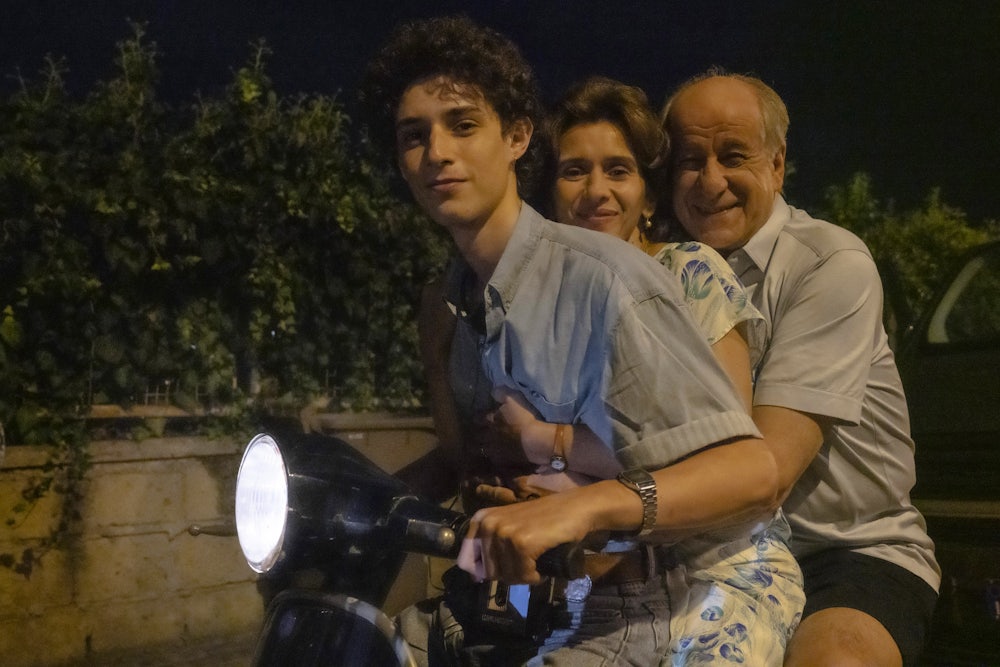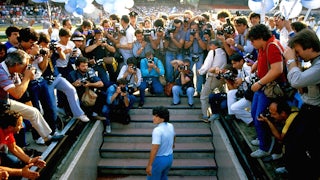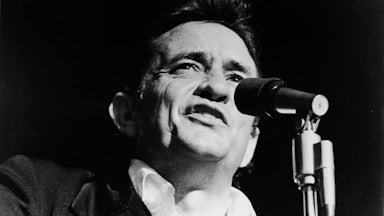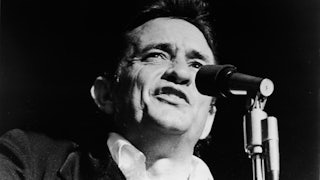He was born on the outskirts of Buenos Aires in 1960, stood 5 feet, 5 inches tall beneath his exuberant mop, and became a secular saint in Italy. Unless you are yourself an acolyte of his cult, or happen to have lived in Naples in the mid-1980s, you may be unaware of the effect that Diego Maradona had when he arrived in that city to play with SCC Napoli.
The passionate relationship between a legendary soccer player and an Italian city lies at the heart of The Hand of God, the new movie from Paolo Sorrentino. The Neapolitan director is best known in the anglophone world for his lush contemplations of beauty, in The New Pope and 2013’s prize-winning La Grande Bellezza (The Great Beauty) and the odd gem This Must Be the Place (2011), which starred Sean Penn as a middle-aged singer, strongly reminiscent of Robert Smith of The Cure, who hunts Nazis in his retirement.
The scene is the mid-1980s in Naples, when Maradona is entering the zenith of his career. Recognized for his prodigious talent at junior clubs in Argentina, Maradona started out in European club football in 1980, joining F.C. Barcelona at the age of 21. But in 1984, by then the most celebrated footballer in the world and frequently compared to Pelé, Maradona surprised everyone by leaving and going to play for SSC Napoli, a second-tier club from one of the then-poorest cities in Europe.
He would later say they were the only club to make him a proper offer, though they gave him a little blue Fiat instead of the Ferrari he requested. In the struggling city of Naples, stereotyped by other Italians as superstitious and controlled by the camorra, Maradona was received like a homecoming god. As one resident of the city at the time recalls, fans from the wealthier, northern city of Milan would chant “Cholerati! Terremottati!” when Naples came to play away matches—deriding the Neapolitans as cholera-sick, earthquake-ravaged. In response, Napoli fans would sing, “Mamma, why does my heart beat so? Because I’ve seen Maradona, I’m in love!”
Sorrentino himself was 16 when Maradona came to his city to play football, and a terrible tragedy befell his family. The Hand of God fictionalizes both of those real events, winnowing what must have been an overwhelming tangle of experience down into two minimal, parallel plots whose precise relationship to one another haunts our young hero, Fabietto (the sweet Filippo Scotti). More restrained and less formally expressive than Sorrentino’s previous work, The Hand of God is an unusual exercise in contrasts of scale—as the smallest moments between mother and son jostle against events with world-historical significance to the history and politics of sport.
The film takes its name from the real-life climax of Maradona’s celebrity, when he delivered two spectacular goals in the 1986 FIFA World Cup Final between Argentina and England, in Mexico City. According to the rules, he should really have only scored one—the referee didn’t see what had happened properly, but Maradona’s hand did touch the ball as he scored the first goal. The goal was allowed, and Maradona followed it up with probably the most beautiful goal ever scored in football, often called “the goal of the century.” The movie’s title phrase comes from Maradona’s press conference after the match, where he said he had scored, “Un poco con la cabeza de Maradona y otro poco con la mano de Dios” (a little with the head of Maradona, and a little with the hand of God).
Maradona is nowhere to be seen at the start of Sorrentino’s movie, which begins with dreamlike confusion. Heavily inspired by Fellini, The Hand of God begins with a pretty woman meeting a mythical creature, the monaciello or “little monk” fairy of Naples. But it quickly turns out that we are seeing a family’s history through the perceptions of Fabietto. This is a scene in his aunt’s life as he misunderstood it, and we are watching the scenes that his infant imagination pieced together.
As Fabietto grows up, the action becomes clearer, and we learn that his last name is Schisa; and he has a brother, Marchino (Marlon Joubert); and two sweet, funny parents, Maria and Saverio (the exceptional Teresa Saponangelo and Toni Servillo). The father works at the Bank of Naples, where he hears whispers of goings-on at the top. The monk-meeting aunt becomes an aunt named Patrizia (Luisa Ranieri) who suffers an abusive husband and psychiatric breakdown. It’s through relatives that Maradona first comes into Fabietto’s life: Saverio comes home speaking of workplace rumors of a large sum being gathered to buy the player.
When the prophesied genius does in fact arrive at Naples, Fabietto’s life appears touched by magic. He and Marchino watch Maradona take practice penalty kicks in the daytime, jaws slack, the ball arcing to perfection each time. Wherever Fabietto walks, his Walkman strapped to the waistband of his 1980s jeans, much like Elio from Call Me by Your Name, the blue light of Neapolitan evening seems to warm, rather than cool, the city’s stone harbors. There is something so blessed about this life, so jovial and idealized, that one senses a storm on the horizon long before it comes.
It comes in the form of an accident, and more than one family member will pass away. Fabietto narrowly avoids the accident, because he is elsewhere—watching Maradona play football. After the cataclysm, Fabietto’s elderly uncle—who latched onto Maradona with spiritual ardency and says early in the film that he will kill himself if Napoli doesn’t buy the player—is sure that Fabietto was saved. For him, Maradona is the icon of downtrodden peoples everywhere: a Communist hero whose every move has a deeper meaning, including this one. The accident’s relationship to Maradona makes it no accident, he believes, and he insists Fabietto’s survival is divinely ordained—a theology of Maradona, if you will.
Since the opening scene fixed our understanding of this world so firmly in Fabietto’s eyes, it makes sense that a numbness envelops the center of the film. It’s only at its end that the faux-joviality is dissipated, as well as the shock of loss, and the teenager is loosened up enough to strike up a conversation with a local film director, played by Sorrentino’s real-life mentor, Antonio Capuano, and the possibility of turning a numbed life into something meaningful through art opens up.
As befits an event with such a lovely name, there is a rich cultural seam of Hand of God art. You can play as Maradona in FIFA ’18 now, but he has been a character in video games since 1986, when England’s goalkeeper, Peter Shilton, licensed his name to a Commodore 64 game, “Peter Shilton’s Handball Maradona.” He was a character in the madcap Argentine comic Cazadore, which ran from 1992 to 2010. There have also been several documentaries about Maradona, most notably Asif Kapadia’s 2019 Diego Maradona. Like Kapadia’s hit films about Amy Winehouse and racing driver Ayrton Senna, the documentary is fulsome and blessed by a lot of original footage of Maradona warming up—a sight a bit like watching Michelangelo doodle in pencil.
Maradona himself seldom appears in The Hand of God: He is an object of adulation but also a ghost, or a spirit. Maradona does not have to be playing football to be present in Naples. He existed at a political level, too. There’s a current of subversion running through the story of Maradona, which Asif Kapadia emphasized in his documentary. He framed the Hand of God episode as “symbolic revenge” against the British for the Falklands war of four years earlier and their invasion of Buenos Aires in the early nineteenth century. In this view, which chimes with Fabietto’s uncle’s compulsive overinterpretation of football’s meaning for the fate of the universe, Maradona cheated in the same way that the English have always cheated everybody: subtly, without appearing to break the rules but, in the end, completely.
The Hand of God is a piece of footballing history about problems of interpretation—the referee with no clear view; the wrong judgment made about the right person at the right time; the ambiguity between the right and wrong outcome in this particular case, considering the competing nations’ histories. There is nostalgia and magic in Sorrentino’s Naples, but, as in the story of Diego Maradona’s own life—which ended in November last year at the age of 60, now the subject of ongoing litigation about medical negligence—glory and tragedy give way to one another with frightening ease.






